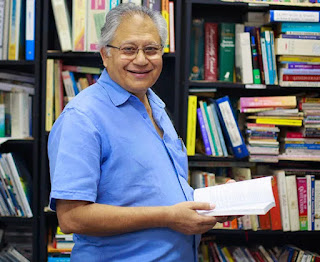Triple P- Shiv Khera
Triple P is a positive parenting program that aims to improve parents' knowledge, skills, and confidence while also lowering the prevalence of mental health, emotional, and behavioural issues in children and adolescents. The programme was initially designed for at-risk children and parents, but now there are different levels of Triple P that work together as a broad, universal public health approach. This programme is based on community psychology principles.
The three Ps in 'Triple P' stand for 'Positive Parenting Program,' which means that your family life will be a lot more enjoyable.
Triple P can help you with:
Raising happy, self-assured children
Manage misbehaviour so that everyone in the family has a better time.
Establish rules and routines that everybody respects and adheres to.
Encourage desired behaviour Take care of yourself as a parent
Have faith that you're doing the right thing.
Developmental Stages
From infancy to adolescence, five developmental stages are targeted. At each developmental stage, the positive parenting program’s scope can be broad and target the entire population, or it can be narrow and target only at-risk children. The programme focuses on the social contexts that influence parents' daily lives, such as the media, primary health care services, child care and school systems, workplaces, religious organisations, and the larger political system. The program's multilevel structure is intended to increase efficiency, reduce costs, and ensure dissemination. The design also makes the best use of available community resources.
History
Professor Matthew R. Sanders and colleagues developed Triple P, or the "Positive Parenting Program," in 2001 at the University of Queensland in Australia. It evolved from a small "home-based, individually administered training programme for parents of disruptive preschool children" into a comprehensive preventive intervention programme. This programme was inspired by health promotion programmes aimed at influencing people on a large scale. The program's overall goal is to improve parents' knowledge, skills, and confidence in order to prevent behavioural, emotional, and developmental problems in children as well as adolescents.
Goals of Triple P (positive parenting program)
Increasing parents' self-sufficiency so that they can feel confident in their ability to parent with little or no additional help.
Increase parental self-efficacy so that a parent believes he or she can solve parenting problems when they arise.
Use self-management tools to help parents improve their parenting skills. This includes self-evaluation of performance, goal setting, and selecting child management techniques.
Promoting personal agency entails teaching parents to "own" the improvements in their family situation.
Promoting problem-solving skills so that parents can "define problems, formulate opinions, create a parenting plan, execute the plan, evaluate the result and revise the plan as needed."
Principles of Positive Parenting Program
A Secure and Interesting Environment
A safe, supervised environment that allows children to explore, play, and learn encourages healthy child development at all ages.
Positive Educational Environment
This principle requires parents to be their children's first teachers. This means that parents must learn to respond positively and constructively to their children's requests while also assisting them in learning to solve problems on their own.
Assertive Discipline
The programme teaches parents how to use effective strategies in specific situations rather than ineffective and coercive discipline like physical punishment, shouting, and threatening. Selecting basic rules for specific situations, discussing rules with children, providing clear, calm, and age-appropriate directions or requests, presenting logical consequences, using quiet time and time out, as well as using planned ignoring are all effective strategies.
Expectations that are realistic
This assists parents in changing their expectations and goals for their child's behaviour so that they are developmentally appropriate for the child as well as realistic for the parent. Parents who have realistic expectations about their child's abilities are less likely to engage in child abuse or neglect.
Self-Care for Parents
This principle aims to teach parents practical skills so that they can see parenting as part of a larger context of self-care, resourcefulness, and well-being, as well as maintain a sense of self-esteem.
About Shiv Khera
Shiv Khera is a self-help author and activist from India. While working in the United States, he was inspired by a Norman Vincent Peale lecture and followed his motivational teachings. Khera is the author of several books, including You Can Win. In India, he established the Country First Foundation to "ensure freedom through education and justice" and launched an anti-caste-based reservation campaign. He also rose to the position of National President of an Indian political party.
RAISING CHILDREN IS NOT ALWAYS EASY
You want the best for your family, for your children and teens to succeed and for your family to be happier and calmer. But when do you learn how to be a parent, how to raise a successful child, or how to parent a teenager?
What if there was an online parenting programme that could answer all of your questions while still allowing you to choose the strategies that are best for your family? Millions of families worldwide have found success with Shiv Khera's Triple P program and it can help you as well.

.jpg)

Comments
Post a Comment